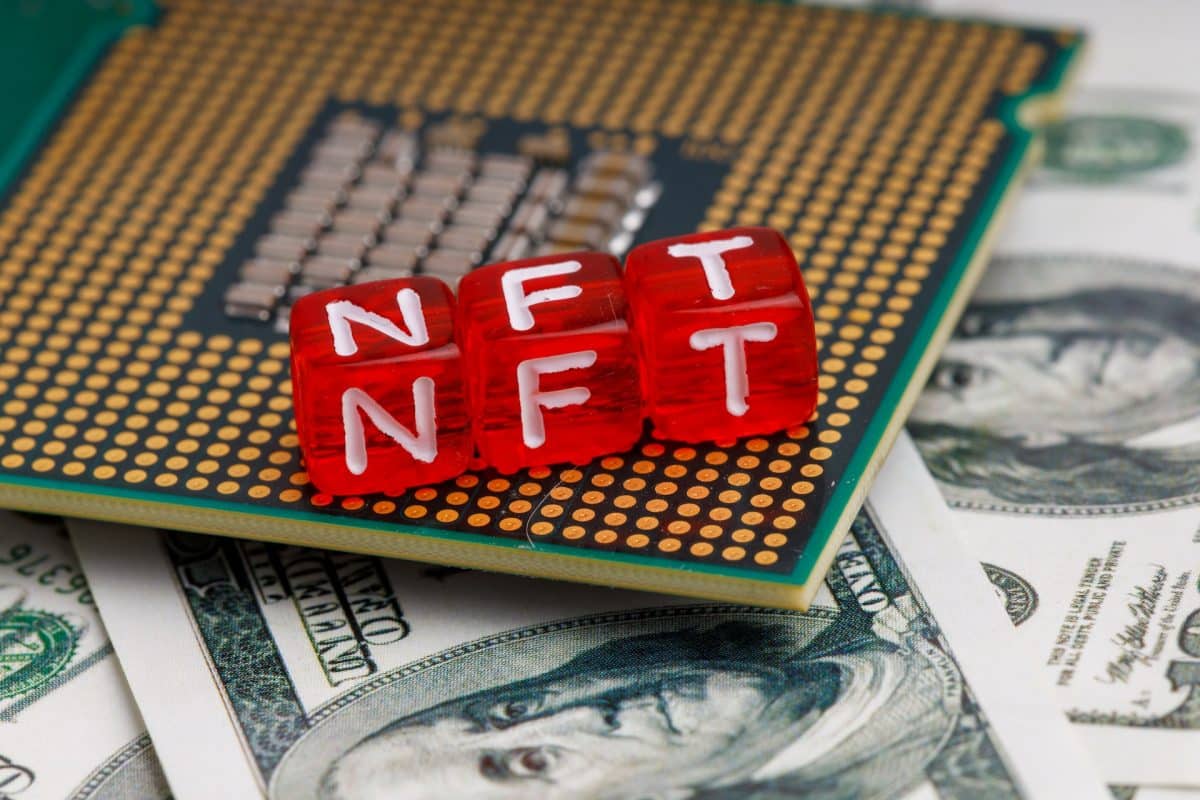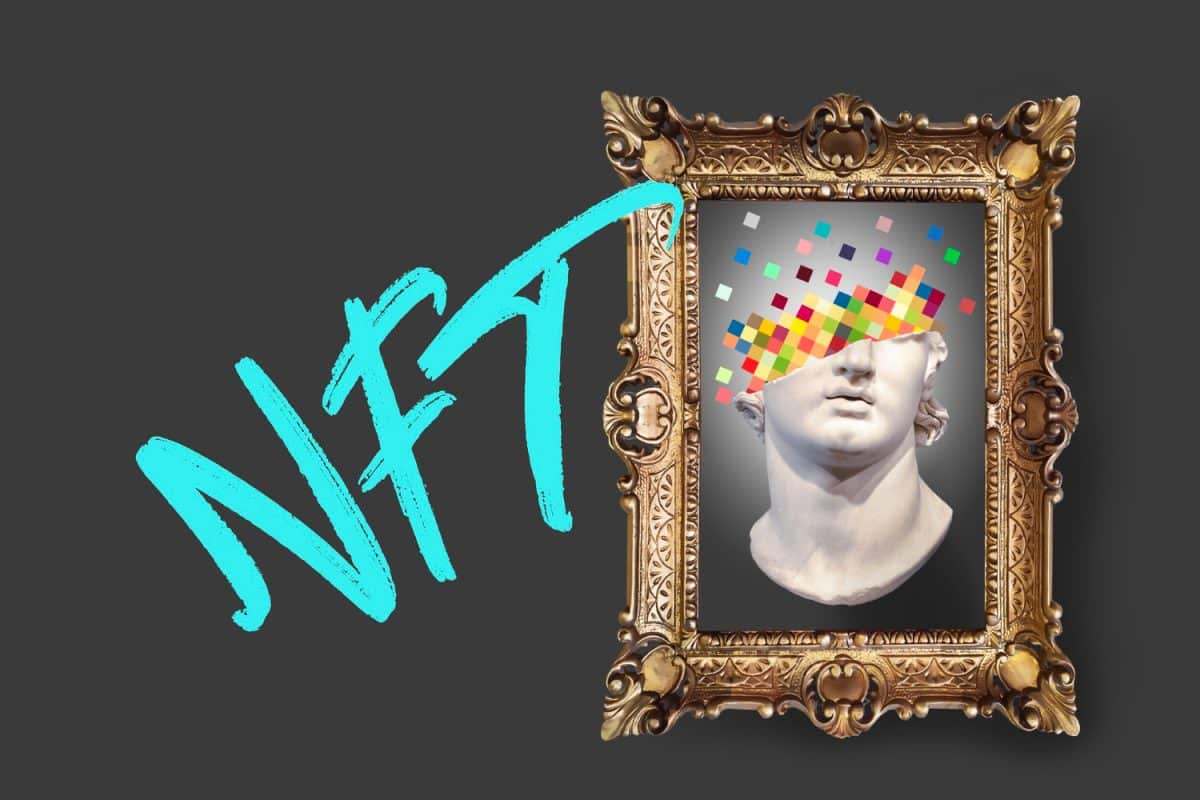It’s that time of the year again. No, we are not talking about the holidays—it’s tax season. Bear market or not, it’s time to assess your gains and losses as you gear up to file your income tax returns. Although non-fungible tokens, or NFTs, have been around for a while, NFT taxes are still a grey area, to say the least. Across the world, crypto and NFT regulations are gaining steam, with some countries releasing NFT-specific tax guidance. Nonetheless, whether you are in the US, UK, Singapore, or any other country, it is a confusing process for both NFT creators and investors. After all, how do you even explain NFTs to your tax accountant?
Are you ready to pay your NFT taxes? Credit: Unsplash
With the due date for filing income tax returns fast approaching for many, you may have already been frantically searching Google and Reddit for NFT tax loopholes. It won’t be surprising if you’re still confused. But don’t worry—this NFT tax guide will try to answer all your questions. Obviously, we can’t help you with NFT tax avoidance; but we hope this guide will make the process easier and help you save on paying too much.
Are NFTs subject to tax?
Well, the answer depends on which country you are in and whether you are an NFT creator, seller, or buyer. In most countries, NFTs are typically subject to capital gains tax. Where NFT taxes apply, if you are a seller, you have to pay taxes on any profits you make from the NFT sale. Additionally, if you are an artist or creator, you are likely to be subject to income tax rules as the tax authorities may consider NFT sale gains as income (we’ll cover this in more detail later).
In addition, what exactly you are selling as an NFT is also an important factor. Typically, NFTs are considered a service, meaning, they are subject to electronically supplied services (ESS) rules. But, these ESS rules also depend on the customer’s location, seller’s commission, and the customer’s fees.
Furthermore, if you are a buyer, purchasing NFTs using fiat is not taxable. However, you have to pay taxes on any purchase you make with crypto. This is because buying, selling, gifting, or trading crypto is a disposal (meaning, to ‘dispose of’ an asset). And any profit from this is subject to capital gains tax.
While most countries have issued tax authority guidance on cryptocurrencies, it’s unavailable for NFTs. For example, while NFT tax guidance is available for New Zealand, it’s unavailable for Australia, Singapore, the UK, and the US, to name a few. In some countries, NFTs are subject to the same tax rules as cryptocurrencies, and in others, NFTs themselves are ill-defined.

Depending on where you are from, yes, you have to pay tax on your NFTs. Credit: Unsplash
How are NFTs taxed in the USA?
The Internal Revenue Service (IRS), the USA’s tax collection agency, updated its tax codes to include NFTs in October 2022. The new Tax Guidance Draft changed asset classes from “virtual currency” to “digital assets”, and explicitly mentions stablecoins, NFTs, and cryptos in the list.
However, there’s still much confusion around whether NFTs are “collectibles” or “commodities”. Under IRC Section 408(m)(2), only “tangible personal property” is considered a “collectible”. And NFTs, clearly, aren’t tangible. Meanwhile, a proposed 2022 crypto bill seeks to define NFTs as “commodities”. Consequently, NFTs would come under the Commodity Futures Trading Commission (CFTC).
For now, the USA taxes NFTs much like crypto and is subject to capital gains taxes.
Capital gains taxes on NFTs in the USA
In the USA, buying an NFT with crypto, selling an NFT, and swapping an NFT for another all come under the purview of capital gains tax. Gifting NFTs above $15,000 is also taxable. To explain, capital gains tax is the tax payable on any profits from the sale of any asset whose value has increased through a holding period.
For example, imagine you bought an NFT for 200 ETH last year and sold it for 225 ETH. Here, you get a 25 ETH profit, which is the taxable amount. The same applies to losses as well, where you will incur a “capital loss”. According to IRS, a change in the value of any crypto can result in capital gain or loss. So, whenever you sell or swap NFTs or encash crypto, they are all taxable.
However, there’s an important factor which determines your tax rate: the holding period. To explain, NFTs held for under a year are subject to short-term capital gains tax. As per the 2023 tax brackets, it’s between 10 to 37%. As opposed, the long-term capital gains tax rate applies to NFTs held longer than a year. These have a lower tax of 0, 15, or 20%.

How are NFT taxes calculated in the US? Credit: Unsplash
How are NFTs taxed in Europe (EU)?
The European Union is taking measures to ensure that crypto assets are adequately taxed in the member states. Last December, the European Commission proposed new tax rules to fight tax fraud and evasion in the crypto sector. If passed, the law will require all digital asset service providers to report crypto-related transactions of EU residents to national tax authorities. These rules will also apply to stablecoins, NFTs, and other digital assets.
“The obligation to report income earned through crypto-asset investments and the exchange of such information will help Member States receive a full set of information in order to collect tax revenues due,” states a draft of the proposed bill.
The new bill will complement the existing crypto-asset law, the Markets in Crypto-assets Regulation (MiCA). The proposal seeks an amendment to the EU Directive for Administrative Cooperation (DAC), the existing tax rules.
Are NFTs subject to VAT?
As of now, most EU nations have not issued any guidance on NFTs and VAT. Hence, you will have to apply the general tax rules to NFTs, which can be a bit tricky. Currently, the EU VAT rules categorise supplies as goods or services. As NFTs are not tangible, the rules treat them as a service.
If both the seller and collector are in the same country, it’s fairly easy to evaluate the VAT rates. On the other hand, if both parties are located in different countries, you will first have to identify which country taxes the sale. This, however, depends on what service you are selling. For instance, while digital services are typically taxed in the country of the buyer, the services related to intellectual property (IP) rights are taxable in the customer’s country when the buyer is not an EU private resident. If the sales are made to a private individual, then the assets are taxed in the seller’s country.
Naturally, this raises an important question: Do NFT sales come under digital services or transfers of IP rights? According to the EU VAT laws, digital services are those supplied over the internet, often automatically, and with limited human intervention. When NFT smart contracts stipulate the transfer of only essential rights, then the sale would fall under the digital services tax bracket. Alternatively, if the seller transfers more IP rights to the buyer, then the sale is likely to be considered a transfer of IP rights.
How are NFTs taxed in the rest of the world?
Let’s take a look at how other countries tax NFTs:
Ireland
Ireland has no separate rules for NFT taxes. However, for Irish tax purposes, cryptos are considered an asset subject to capital gains tax. As NFTs are also regarded as a crypto asset, it follows the same cryptocurrency tax rules. You have to pay taxes when you use crypto to pay for goods and services as well as when you receive crypto and NFTs as gifts. In the case of the latter, you are liable to pay the Capital Acquisitions Tax (CAT). However, there is no clarity on taxation on NFTs received by airdrops. Typically, Irish laws exempt crypto from VAT, however, certain terms and conditions apply.
India
In early 2022, India announced a 30% tax on any profits from the transfer of any virtual digital assets (VDAs), including crypto and NFTs. This is applicable to any income from the transfer of VDAs, irrespective of whether it’s a business/investment income and the holding period. Recipients of NFT and crypto gifts are also liable to pay the 30% tax. This tax will be effective from the financial year 2023-2024. In addition, these assets are also subject to a 1% tax deduction at source (TDS), starting 1 July 2022. It is important to note that TDS applies to the final NFT sale amount and not to the profits/loss alone.
As per the April 2022 amendment to the country’s Income Tax Act, some NFTs, however, are exempt from VDA tax. For example, NFTs “whose transfer results in transfer of ownership of underlying tangible asset,” are not considered as VDA for tax purposes. In short, if an NFT is linked to a tangible asset, like real estate, India does not consider it a VDA.

India has imposed a 30% tax on crypto and NFT profits. Credit: Unsplash
Singapore
In March 2022, Singaporean Finance Minister Lawrence Wong announced that income earned from transacting or trading NFTs is taxable in the country. However, as the country does not have a capital gains tax framework, it will not tax the profits of residents who earn capital gains from NFT transactions. Therefore, the Inland Revenue Authority of Singapore will tax NFTs based on the nature of the asset, intention of purchase, holding period, and frequency and volume of similar transactions.
Canada
As Canada does not have any specific NFT tax-related guidelines, experts advise following the country’s current crypto tax rules for tax purposes. Typically, creating and selling NFTs for commercial purposes, buying and selling NFTs for profits, promoting a product or service, and making repetitive transactions, fall under business income tax.
If you are not a crypto business owner or a day trader, your NFTs will likely be taxed as investment income. Furthermore, 50% of capital gains on NFT sales are subject to capital gains tax, which usually applies to those buying and selling NFTs. Ultimately, with no clear-cut rules on NFT taxes, the Canada Revenue Agency (CRA) decides taxes on a case-by-case basis.
United Kingdom
As with most countries, the UK also does not yet have separate legislation for NFT taxes. While Her Majesty’s Revenue and Customs (HMRC) has classified NFTs as an asset separate from crypto, it has only issued tax guidelines for crypto. Under these circumstances, it’s safe to assume that profits and losses from NFT transactions would be liable to capital gains tax. In other words, if you sell NFTs for a profit, you will have to pay the capital gains tax, with the rates varying according to the holding period.
On the other hand, creating and selling NFTs will fall under income tax. Moreover, Swapping and gifting NFTs are also taxable as HMRC sees this as disposal of an asset.

Created and sold an NFT art? Prepare to pay taxes! Credit: Freepik
NFT taxes for creators
As previously mentioned, in most countries, different tax rules apply if you are the artist or creator of an NFT. Now, creating/minting an NFT in itself is not taxable. But, when you sell that NFT, you have to pay corresponding taxes. Typically, you are liable to pay taxes on the profits you earn from selling NFTs. Since you created the NFT, this profit is no longer a capital gain. Instead, it will be considered an income subject to normal income tax rates. In the US, this will be 10-37%.
Alternatively, if you created the token as part of your business, you will be liable to a self-employment tax, which is slightly higher than regular income tax rates. Conversely, self-employed individuals will be able to deduct business expenses, such as material costs, utility bills, digital tools, or even gas fees.
This is why it is essential to establish whether you are simply a hobbyist or if you rely on your art as your main income source. In the US, for example, those who spent 500 hours or more in a financial year making NFT art are considered self-employed. As these criteria vary from country to country, make sure to discuss the nitty gritty with your accountant.
Additionally, if you are a business owner, you must report all your revenues, whether it is in crypto or fiat and irrespective of whether you transferred it to the bank or not. Furthermore, if you are paid royalties for every resale of your NFT, then you will have to pay both the regular income tax as well as the self-employment tax on the royalty amount if the sale was part of your business.
How do I avoid paying too much tax on NFTs?
Hopefully, the above information has answered most of your NFT tax-related queries. Now comes the next important bit: how can you avoid paying too much tax on your NFTs? Obviously, you must report all your NFT transactions when you are filing your taxes; tax evasion is a punishable offence. That said, there are a few simple steps you can take to save a few bucks:
Increase your NFT holding period
As previously mentioned, most countries factor in the holding period when it comes to NFT taxes. Therefore, hold your NFTs for longer than a year to pay the taxes at the long-term capital gains rate, which is lower than the short-term rate.
Purchase NFTs with fiat
Pretty much all the countries consider buying NFTs with fiat a non-taxable event. This is because, in this scenario, you are not ‘disposing of’ any assets. As opposed, NFT purchases in crypto are taxable, and you will have to pay capital gains tax if your NFT’s value goes up later.
Sell your NFTs in a low-income year
When it comes to income tax, the amount of taxes you pay is dependent on your income for that financial year. The higher your income, the higher the taxes you pay. Therefore, it is a common practice for investors to sell their crypto and NFTs during a year in which they earned a low annual income.
Don’t miss your NFT losses!
Amid the current crypto winter, it is likely that you may have some NFTs that are trading at a loss. While this isn’t exactly great for your portfolio, you can claim a capital loss when filing your tax returns. These losses can offset capital gains from your other assets, including gains from other NFT and crypto sales, reducing your tax liability.
How To Explain NFTs to your tax accountant
While we have explained the general terms and conditions surrounding NFT taxes, this is NOT tax advice. It is crucial to work with a trusted and experienced tax accountant before filing your tax returns for the year. You can always work with your existing accountant, provided they understand the nuances of the industry. Nonetheless, it is advised to consult accountants who have the necessary skills and experience in handling the accounting of crypto assets. For this, you can always refer to the websites of accounting firms to know the services they specialise in.
The post The Ultimate Guide To Paying NFT Taxes Around The World appeared first on NFT Evening.
Read MoreBy: Reethu Ravi
Title: The Ultimate Guide To Paying NFT Taxes Around The World
Sourced From: nftevening.com/the-ultimate-guide-to-paying-nft-taxes-around-the-world/
Published Date: Mon, 09 Jan 2023 15:19:03 +0000
----------------------------
.png)





